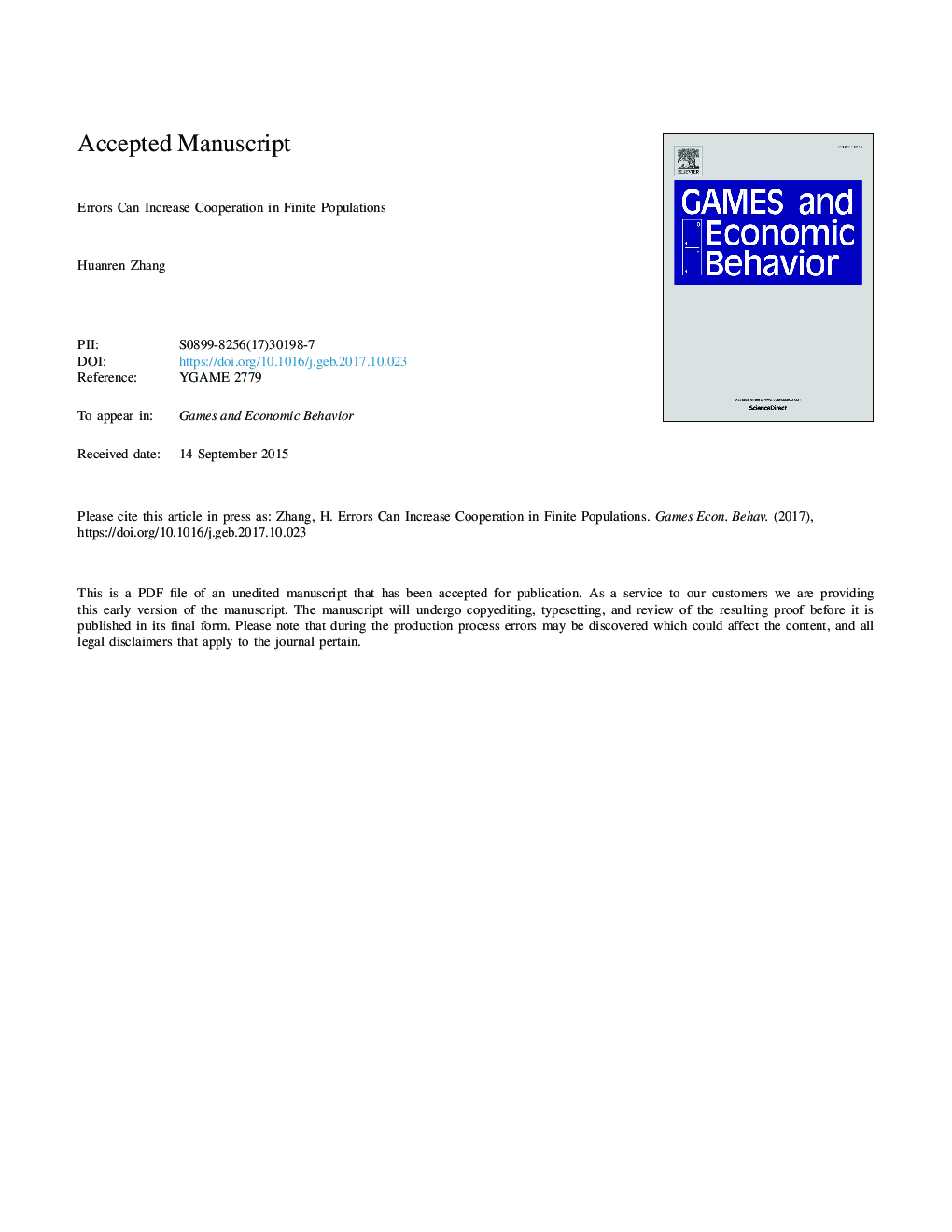| Article ID | Journal | Published Year | Pages | File Type |
|---|---|---|---|---|
| 7353002 | Games and Economic Behavior | 2018 | 27 Pages |
Abstract
I use an evolutionary game to investigate how the level of noise influences cooperation and efficiency in a dynamic setting. Players choose strategies to play indefinitely repeated prisoner's dilemmas; the strategies are represented by finite automata, and complexity costs are imposed. Players update their strategies based on the successfulness of the strategies. Using both theoretical analysis and computational experiments, I show that the presence of noise dramatically changes the system dynamics. The effect of noise interacts with the benefit of cooperation: noise can increase cooperation, but only when its level is low and the benefit of cooperation is high. In the noise-free environment, I observe constant oscillations between cooperation and defection. In contrast, the presence of noise makes Win-Stay Lose-Shift (WSLS) a successful strategy when the benefit of cooperation is sufficiently high, making cooperation relatively stable and leading to an efficient outcome.
Keywords
Related Topics
Social Sciences and Humanities
Economics, Econometrics and Finance
Economics and Econometrics
Authors
Huanren Zhang,
